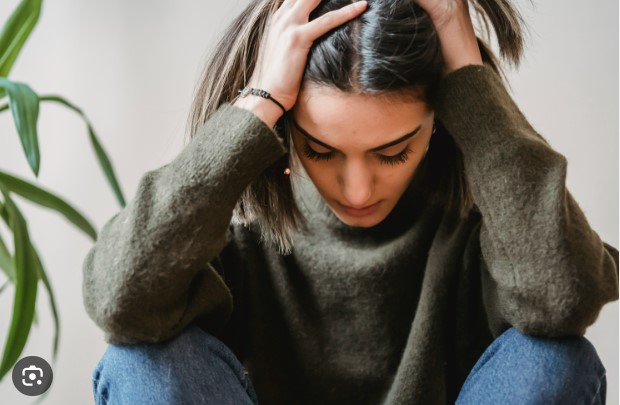We’re used to hearing that our high school days are the best of our lives, but that may no longer be true for most American teens as they live through the anxiety of frequent school shootings and other disturbing events like bullying and shaming.
A recent report looks at the numbers and shows more high school girls are sad, hopeless, and even suicidal.
May is Mental Health Awareness Month, and Meredith McDonough, news anchor at WESH 2 News, sat down with local teens, their parents, and counselors to try and understand why teen girls are in crisis.
Annabel Kovacsik is graduating this May from Seminole High School, Florida. She’s the general manager of the chorus department and a member of First Take Acapella.
“There have been times, and I think everybody kind of feels this way. Like, oh, the world would be better without me. High school is mentally exhausting, and especially for teen girls,” said Kovacsik.
Kovacsik’s counselor of several years, Shantala Boss, says you would think Kovacsik has it all together, but teens that present well need checking too.
“A lot of kids are afraid to show those things. Sometimes you can have a star student that is top of their game making straight A’s and on top of sports and doing all these things, but they’re really struggling emotionally,” said Boss.
Like so many teen girls, Kovacsik was in that category. She found herself in an unhealthy relationship and needed help.
“I started getting very, very sad out of nowhere, like, I would have a good day. And then I would go home, and I would, like, sit in my bed and just want to sit in the dark and not talk to anybody. And just, literally, just shut out the entire world,” Kovacsik said.
The Centers for Disease Control and Prevention recently released a report where they collected data on the health behaviors and experiences of American high school students from 2011 to 2021.
One in three high school girls say they have considered suicide. Three in five teen girls felt persistently sad or hopeless. Both stats are up nearly 60% in the last decade.
“There’s a lot of pressure that there wasn’t on kids 10-15 years ago because of all the access that they have to social media. So, the same problems that they’ve always dealt with are just magnified. They’re waking up in the middle of the night, they’re checking their phones, they’re worrying, they’re having anxiety,” said Boss.
Teen girls of all ages are seeking help. From the demands of school, sports, and activities to the pressures of social media, it can be difficult to balance. Sabrielle Denis, 14, finds talking to someone makes her feel better.
“I feel like being able to feel heard and understood, and not feel like shame for how they feel because a lot of people criticize you for, like, if you’re sad or something, you’re sensitive. I just wanted to become more like, happier. Like, I wanted to find a stable sense of happiness. And I was like, talking to again, like a trusted adult and stuff would probably be good for me,” said Denis.
Cherlette McCullough is a family therapist and explains teens want to be heard, loved and accepted and navigating relationships at that age can be challenging.
“Because when you think about brain development for teens, they don’t have the coping skills that we have as adults to be able to work through things when they’re alarmed or they’re triggered. They just don’t automatically have those skills to work through those things. So that’s where a lot of the sadness and hopelessness can come from,” said McCullough.
McCullough offers some guidance for parents who think their child may be struggling with depression, anxiety or suicidal thoughts. Here’s what to look for:
A change in sleeping patterns and appetite. Also, are their grades falling, or are they isolating themselves? All signs could be a call for help. McCullough recommends asking open-ended questions like: “What’s the best of your day at school? What’s something exciting you’re looking forward to?” and “What do you need right now that you don’t have?”
The most important thing, according to Kovacsik, is to start talking about mental health so that the young women realize they are not alone.
“I think just recognizing that people do feel the same way that you feel… [makes you] feel a little bit better,” said Kovacsik.












